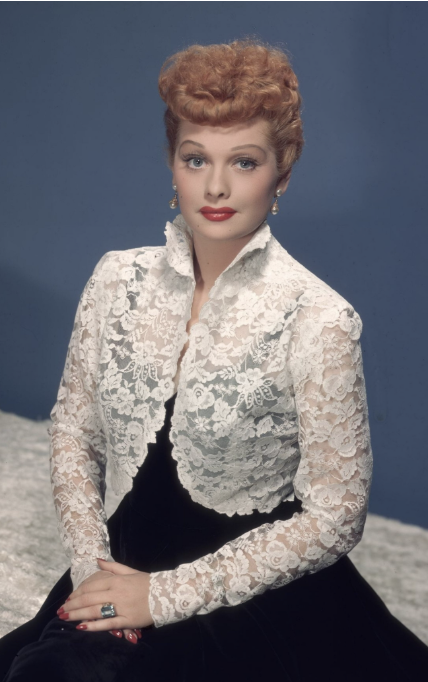
Lucille Ball’s Timeless Leadership Lessons: What Modern Leaders Can Learn from the Queen of Comedy
Aaron Sorkin’s biographical drama Being the Ricardos gave audiences a fresh look at Lucille Ball—the fearless force behind I Love Lucy, and one of the most influential women in entertainment history. While many viewers were drawn to the film for the behind-the-scenes look at TV’s first couple, Ball and Desi Arnaz, there’s much more to take away from her story than celebrity gossip or casting debates.
What many may not realize is that Lucille Ball was far more than a sitcom star—she was a trailblazer in business, branding, and leadership during a time when women were rarely granted a seat at the executive table. Ball didn’t just play a housewife—she broke the mold of one.
Here are five powerful leadership lessons today’s professionals can still learn from the First Lady of Television:
1. Women in Charge: Be the Boss, Unapologetically
Lucille Ball wasn’t content with being the star of I Love Lucy—she co-founded and eventually took sole ownership of Desilu Productions, the powerhouse studio behind not only Lucy, but also iconic shows like Star Trek and The Untouchables. When she bought out Desi Arnaz’s share of the company after their divorce in 1962, Ball became the first woman to run a major Hollywood studio.
At a time when most women were relegated to the background, Ball stood in the spotlight as both talent and executive. She was decisive, visionary, and unafraid to assert her creative control, even against the wishes of studio executives.
2. Build a Personal Brand That Lasts
Before personal branding was a buzzword, Lucille Ball mastered it. She blurred the lines between actress and character, embedding her real name—Lucy—into nearly every project she touched. From The Lucy Show to Here’s Lucy and Life with Lucy, her name became a franchise unto itself.
Ball’s signature red hair and unforgettable comic timing became synonymous with her brand, helping her remain a household name for decades. Her image was so strong it extended to a wide array of merchandise: dolls, clothing, toys, even a comic book series—all reinforcing her unmistakable persona.
3. Surround Yourself with Smart, Supportive People
Even the strongest leaders know success is a team effort. Ball credited much of her show’s impact to I Love Lucy’s head writer Jess Oppenheimer, who helped shape the groundbreaking scripts and storylines that would define the golden age of television.
Her partnership with Desi Arnaz was also deeply strategic. Arnaz, a savvy businessman, was instrumental in pioneering the use of 35mm film for the series—ensuring I Love Lucy episodes would retain high quality in reruns, creating a new revenue stream long before syndication became standard.
Ball also thrived alongside her co-stars, Vivian Vance and William Frawley, whose chemistry with Lucy and Ricky elevated the show’s humor. While Vance and Frawley famously disliked each other offscreen, the magic of the ensemble cast became a masterclass in managing professional dynamics.
4. Know When to Push—and When to Let Go
Ball understood the value of fighting for what mattered. One of her boldest moves was convincing CBS to allow I Love Lucy to incorporate her real-life pregnancy into the show—an unprecedented move for its time. Together, she and Arnaz also negotiated to retain the ownership rights to the series through Desilu, a decision that would secure their financial independence for years to come.
But she also knew when to step back. Whether it was letting go of her marriage to Arnaz or navigating the evolving television landscape, Ball made tough choices with grace—and never let sentimentality get in the way of progress.
5. Take Risks, Even When They’re Unpopular
When Ball decided to do television in the early 1950s, TV was still considered the lowbrow cousin to film. Many stars feared the small screen would damage their careers. But Ball leaned in. She trusted her instincts and bet on the new medium—and her instincts paid off.
Later in life, after her divorce from Arnaz, Ball risked her carefully cultivated image by returning to television on her own terms. She kept working, kept innovating, and kept pushing boundaries at a time when many might have retired.

Lucille Ball’s legacy goes far beyond slapstick comedy and black-and-white reruns. She was a pioneer who took control of her career, built a media empire, and changed the entertainment industry forever—all while making the world laugh.
In an era where leadership is being redefined, Ball’s story remains a powerful reminder: the most effective leaders are bold, self-aware, and unafraid to challenge the norms—whether they’re running a boardroom or cracking up a live studio audience.
